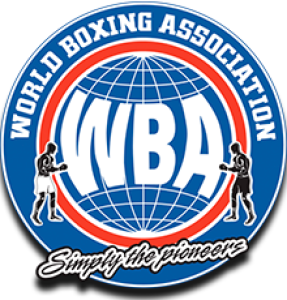I was set to become a lawyer but Amir Khan and Ricky Hatton inspired me to become boxing's youngest promoter
22/02/2024 13:49
Ben Shalom has made a name for himself as the face of Boxxer, yet the 30-year-old’s rise is the result of years of hard work. Here, he writes exclusively for talkSPORT.com about the sacrifices he’s made…
It might seem to many like I have come out of nowhere but it’s been a long journey to the top.
I first cut my teeth in the wild world of boxing when I was 18 years old.
Much of my teens and early twenties were spent helping out local promoters in Manchester, going to gyms and promoting fights, doing whatever I could to get a foot in the door.
At the time, I was studying for a degree in law at the University of Nottingham but I knew early on that I didn’t want to become a lawyer.
All I wanted to be was a boxing promoter and I worked hard to make my dream a reality.
I sacrificed my 20s for the sport but I wouldn’t have it any other way.
First show
The first show I ever worked on was a domestic dust-up between Sam Hyde and Blaise Mendouo in 2016 at the Bowlers Exhibition Centre, a small hall in Manchester that held up to 1000 standing spectators.
Seven years later, me and my team are putting on blockbuster showdowns at the OVO Arena, The O2 and the Vitality Stadium.
But I never forget those early years. I remember striking up my first deal with BetFred for £20,000.
I was waiting outside their offices for the marketing manager to come out for at least a couple of hours.
That was how it was at the start, incredibly challenging, yet so fun.
We had no TV deals back then, it was a case of relying on tickets and sponsors to help us break even.
After several years of working on small hall shows, I borrowed some money and applied for my promoter’s license with the British Boxing Board of Control in 2018.
I was 23 years old, the youngest British boxing promoter back then.
That was when Ultimate Boxxer was first created and the rest, as they, is history.
The inspirations
If it wasn’t for Amir Khan and Ricky Hatton I wouldn’t be working in boxing right now.
My earliest boxing memory was watching Khan win the silver medal at the 2004 Olympics in Athens.
Little did I know that 18 years later I would be promoting his swansong appearance against Kell Brook at the AO Arena, Manchester. It’s a funny old game.
Being a Manchester lad, both Hatton and Khan were massive inspirations for me growing up – and I have them to thank for sparking my fascination with boxing.
The Future
The future is bright for BOXXER. Up until this point we’ve had to use fighters that might have been with other promoters or were coming to the end of their careers.
But now we’re starting to see our own talent come through.
You’ve got Frazer Clarke fighting Fabio Wardley at the O2 in March.
There’s Ben Whittaker who is poised to become the face of British boxing alongside Adam Azim, and Caroline Dubois.
Our roster is bursting with bright up-and-comers as well as already-established names like Richard Riakporhe and Chris Billam-Smith.
Those early first couple of years were about proving we could put on big shows and attract marquee names.
And now, we’re getting into an era where we are seeing fighters that turned over with us coming to the forefront and boxing for titles.
That’s what I love the most about boxing – creating superstars – and I hope to do it for years to come.
Over time, we want to change the perception of boxing and continue to grow the women’s side of the sport, which we have had so much success with.
The next step is to put on more shows in the US and internationally because those are where the biggest fights are really made.
In the end, it’s about making an impact on the sport that we wanted from the start, to become the most recognisable brand in boxing.


